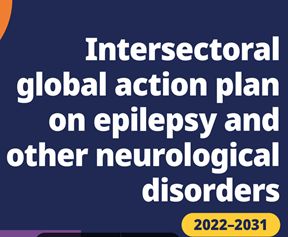Editor’s Choice vol. 119: A meta-analytic evaluation of the effectiveness and durability of psychotherapy for adults presenting with functional dissociative seizures.
Markus Reuber MD PhD, Academic Neurology Unit, University of Sheffield, Royal Hallamshire Hospital, Glossop Road, Sheffield, S10 2JF
The last three decades have witnessed a steadily accelerating interest in what the
International League Against Epilepsy (ILAE) may soon call functional / dissociative
seizures (FDS, the forward slash in this label suggests that the terms ‘functional’ or
’dissociative’ may also be used on their own). It is likely that this interest was initially
sparked by the fact that better access to video-EEG (and learning from video-EEG
studies) had increased the confidence of clinicians to distinguish FDS disorders more
clearly from epilepsy 1 . As patient cohorts grew, studies described predisposing,
precipitating and perpetuating psychological, social and biographical factors
characterised the aetiology of FDS with increasing confidence and granularity 2 .
Although this research demonstrated that there was aetiological heterogeneity 3 , FDS
have come to be understood as an involuntary response akin to a conditioned reflex 4 ,
typically manifesting in the context of abnormal emotion processing 5 . This
understanding of FDS provides a clear rationale for psychological therapies, and an
impressive number of psychological treatment studies have now been published.
However, while most experts consider them as the treatment of choice, many patients
with FDS (even in high income countries) still cannot access such interventions 6 . One
important reason for the lack of access is that healthcare commissioners still need to be
persuaded that such therapies are effective.
My editor’s choice from the current volume of Seizure, a systematic review and meta-
analysis of seizure frequency and severity outcomes of psychological treatments for FDS
by Chris Gaskell et al. may help with this. Following on from previous work by the same
group demonstrating improvements in non-seizure outcomes associated with
psychological interventions for FDS 7 , the current meta-analysis of 44 studies involving
1,300 patients arrived at a pooled estimate for seizure freedom at the end of treatment
of 40 % and a pooled rate for ≥50 % improvement in seizure frequency of 66 %.
Improvements were not lost during follow-up. At group level, the pooled seizure
frequency improvement achieved a moderate effect size (d = 0.53). FDS frequency
reduced by a median of 6.5 seizures per month.
This systematic review and meta-analysis also identified weaknesses of the research
examining the effectiveness of psychological treatments in patients with FDS. Over three
quarters of studies were deemed to be at high or medium risk of bias (mainly due to
small study size and the inclusion of unblinded observational studies). This means that
there is more work to do. However, the most impressive study contributing to the
findings by Gaskell et al (the CODES trial involving the randomisation of 368 patients) 8
had a low risk of bias.
Combined with the fact that patients in the psychological intervention group in this trial
did significantly better than patients only receiving standardised medical care in 9 of 17
outcomes (and worse in none), the paper by Gaskell et al. will hopefully ensure that
more patients with FDS come another step closer to gaining access to treatments which
can help them.
References
1 Reuber, M. & Elger, C. E. Psychogenic nonepileptic seizures: review and update.
Epilepsy and Behavior 2003; 4: 205-216.
2 Brown, R. J. & Reuber, M. Psychological and psychiatric aspects of psychogenic non-
epileptic seizures (PNES): A systematic review. Clin Psychol Rev 2016;45: 157-182.
3 Hingray, C. et al. Heterogeneity of patients with functional/dissociative seizures:
Three multidimensional profiles. Epilepsia 2022; 63: 1500-1515.
4 Brown, R. J. & Reuber, M. Towards an integrative theory of psychogenic non-
epileptic seizures (PNES). Clin Psychol Rev 2016; 47, 55-70.
5 Williams, I. A., Levita, L. & Reuber, M. Emotion dysregulation in patients with
psychogenic nonepileptic seizures: A systematic review based on the extended
process model. Epilepsy Behav 2018; 86, 37-48.
6 Hingray, C. et al. Access to diagnostic and therapeutic facilities for psychogenic
nonepileptic seizures: An international survey by the ILAE PNES Task Force. Epilepsia
2018; 59, 203-214.
7 Gaskell, C. et al. A meta-analytic review of the effectiveness of psychological
treatment of functional/dissociative seizures on non-seizure outcomes in adults.
Epilepsia 2023; 64 , 1722-1738.
8 Goldstein, L. H. et al. Cognitive behavioural therapy for adults with dissociative
seizures (CODES): a pragmatic, multicentre, randomised controlled trial. Lancet
Psychiatry 2020 7, 491-505.





